Patrice Sarath's Blog, page 7
December 1, 2019
The Story a Week Challenge
2019 was a year of many challenges
and many accomplishments. Fog Season
came out — yay! The Gordath Wood series was reissued by sfgateway!! Woo-hoo! I managed
programming for ArmadilloCon,
and boy howdy was that a challenge but also a huge accomplishment.
The other big challenge started in
January and was one that I gave myself in the interests of becoming a better
writer. Starting the first week in January, I strove to write a story a week.
It was an interesting experiment.
Some stories flowed from my fingertips. Others were like chipping granite. I
had to turn off the internal editor and let the magic happen, and well,
sometimes the magic didn’t happen. I kept myself from going back to reread,
because I wanted to let the stories gel. I’ve only now, in November, gone back
to review my output. And, well…
In some ways, this was a failed
experiment. I wrote fewer than twenty stories (correction: I just found a
couple that I had written and forgotten about, so there are actually twenty
stories! Woo-hoo!). I was derailed in the summer when the convention took all
of my free time. Some of the stories were pretty…not good. (Interestingly, my
opinion of which ones those were has changed since I’ve gone back to reread.)
In more important ways, I succeeded
beyond my wildest dreams. Some of these stories worked in exciting ways. One
has become a new novel project, and it’s hard, and kicking my butt, and
stretching me in ways I never thought I would grow, and I would never have
discovered this story without this project. I’m excited by what I’ve produced.
There’s a dopamine hit for every The End I’ve written, something that takes
longer when writing a novel. So basically this project was me like a rat
hitting the crack button, but anyway…
Two stories have already started the
submission process, and another two have gone out to my small cadre of
newsletter subscribers. I’m editing them one at a time, while also working on
new projects. They are a deep well of work that I intend to draw on.
Will I do this again in 2020? I
don’t know yet. Maybe it’s an every other year thing, since 2020 will be filled
with editing. And the year isn’t over. I’ve got a few more weeks left. Maybe
it’s time to see if I can get at least a handful of stories out before December
31.
The
CampaignThe
Star Seeds Witches Meet at Midnight (on submission)The
Westering Woman (novella)Dirt
Track Rodeo GirlArchaea
(unfinished)Dog
GirlRed
Ned Mederos and the Sea Girl of Port St. Frey (newsletter)Tru
BlueFollowing
the SunG
on a Shopping SpreeLast
Train to Hab OneFrancine
Goes WestFive
Sons for Fala (novella)Caro
Comes HomeSepiaThe
Long Walk (unfinished)The
Cutting Table (newsletter)PonyLucy
Grey The
Scent of Horses (on submission)
October 30, 2019
The Second Book
Or, Let’s talk about Red Gold Bridge and Fog Season
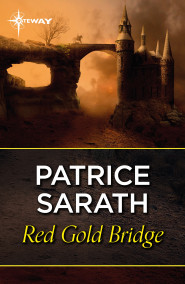 In my career I’ve had two second books so far: Red Gold Bridge and Fog Season. Published earlier in 2019, Fog Season, the second book in The Tales of Port Saint Frey, follows up with the further adventures of Yvienne and Tesara Mederos. It deepens their stories, carries on with the consequences of their actions, and brings in new villains and new dangers.
In my career I’ve had two second books so far: Red Gold Bridge and Fog Season. Published earlier in 2019, Fog Season, the second book in The Tales of Port Saint Frey, follows up with the further adventures of Yvienne and Tesara Mederos. It deepens their stories, carries on with the consequences of their actions, and brings in new villains and new dangers.
Red Gold Bridge has just been reissued by sfgateway. The second book in the Books of the Gordath, it is about what happens when a door you thought was closed for good, opens again — and your worst nightmare comes through. It’s about love, rescue, and finding your place.
Both books are very different, but they have one thing in common — they are better than the first book in the series. Oh, I don’t mean better as in the first book is bad. I don’t sell bad books. (At that statement, middle-aged paunchy boys flex their necks and crack their knuckles, ready to tell me how wrong I am. Yes. That is antagonistic. If you’re reading it, I left it in after a bit of a back and forth with the better angel of my nature.)*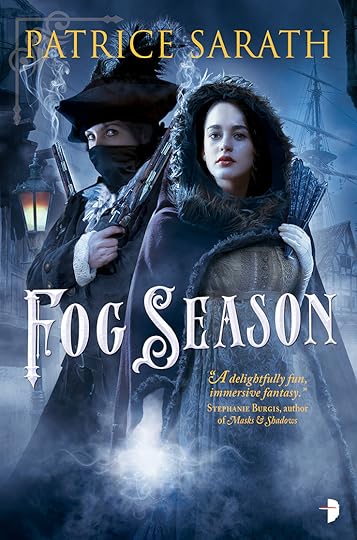
But better in that the pacing is better, the plotting is better, the overall story telling is better. Both books can also be read as the entry into the series. This is a trick that I learned from my first editor, Susan Allison, who told me not to write too much backstory — you don’t want new readers to put down the second book because they think they have to pick up the first. It’s a fine line, but it can be done. So here’s my pitch — go ahead and read Fog Season before The Sisters Mederos, or Red Gold Bridge before Gordath Wood. You’ll be fine.
Here’s another reason the second book is better. I have less
time to write it. The first book — any first book — has had a long time to gel.
The second book is under deadline. There’s no time to be precious. It’s got to
be done. I remember getting the contract for the Gordath series and I had six
months to deliver the second book. In the end they gave me 9 months, I asked
for an extra three weeks, and we got it done.
Red Gold Bridge is still better. I threw out nearly 50,000 words (the perils of pantsing) and I still got it done and it’s still a better book.
Similarly Fog Season. I had learned my lesson and had the book written — mostly — before we sold The Sisters Mederos, but there was a lot of back and forth with my agent and editor, respectively. Toward the end, the editor and I had a call, and the last piece fell into place, making the book exponentially better and the whole thing come together like a puzzle piece.
As writers, we get better with every book. We get better at
structure and pacing and emotional heft and resonance, and world building and
character, and stakes, and conflict and joy and sorrow. Each subsequent book
should always get better than the last, and should also be harder to write, if
we’re doing our jobs right.
Fog Season and Red Gold Bridge. Out now. Doing what second books do best — holding up the promise and delivering more.
*Better angel: That’s mean
Me: Look, you know what happens when women, especially
middle-aged women, acknowledge that they are good at something. They get “well,
actually’d” by helpful men.
BA: But fat-shaming?
Me:
Me: Should I take out paunchy?
BA: Take out paunchy.
Me: Fine.
September 16, 2019
Welcome back to Gordath Wood…
I’m pleased to announce that SF Gateway is re-issuing my trilogy, The Books of the Gordath, in e-format, beginning in October. I’m so excited to make these stories of adventure available once more in new editions for new readers. You can read excerpts from each book below. See where the adventure began.
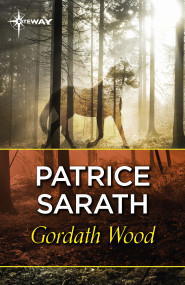
In Gordath Wood, Lynn Romano and Kate Mossland are plunged into a world of danger and intrigue far removed from the posh horse country of New York. They have to use their strength and common sense to survive in Aeritan, a country at war. But the greatest danger is what lurks in the woods.

In Red Gold Bridge, doors that have been opened are not so easy to close. Lynn and Kate have to return to the world of Aeritan to finish what they’ve started, and begin new lives.
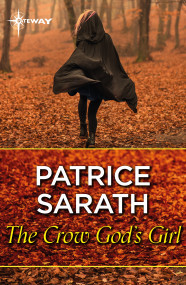
In The Crow God’s Girl, Kate has to choose — independence over obedience, leadership over safety. With the aid of a strange girl, a band of brothers, and a new people seeking a homeland, Kate Mossland is no more, while the leader of the crows takes wing.
If you are ready to sink into an epic tale of adventure, fantasy, romance, and horses, the Gordath awaits.
August 31, 2019
The Horse Panel
The Horse Panel
At ArmadilloCon and at WorldCon, I was on panels on how to write horses. Since each panel was only 50 minutes, we got through like .05% of what a writer needs to write realistic horses in a fantasy novel. And that was with both panels combined. What this blog post is here is the best advice I can give to authors writing horses, and to also talk about how the one question everyone asks is the wrong question.
But to start: What is the best way to learn about horses?
If you can’t go back in time and start as a seven-year-old girl, then read children’s books about horses, both nonfiction and fiction. There are literally zillions (yes yes, don’t @ me for both literally and zillions) of books. There are horsemanship books, my first pony books, Black Beauty, the Black Stallion Books (in Australia there are the Wild Brumby books and I am infuriated that I didn’t know about these until I was an adult), there are the Thelwell ponies, there are books and books and books. Go get you one or several. Wikipedia. Yeah, I know, but you can find diagrams of horses and the names of body parts. That’s a start. YouTube videos are great too. There are videos about foxhunting, racing, rodeos, show jumping, farriers, training mustangs, everything. If you are comfortable talking to an 11-year-old about Minecraft, find you one (your own or somebody else’s) to ask about her (or his, but mostly her) horse obsession. Even in cities, you can find horses. Philly has a polo club for inner city kids. There are places where you can learn about carriage horses (bonus – you can learn about carriage horses and their harness, which is helpful if you are writing secondary world Regency-inspired fantasy). Go out to nearby stables. Ask to pet a horse. Ask to groom one. Smell them. Some people don’t like the smell of horses and manure. Fine, if you are one of those people, I judge and judge hard, but most importantly, now you know what a horse smells like and you can put that sensory detail in your writing.It’s research. Pony up (like I was going to let that one go by) and pay for a trail ride. Now you know how painful it is to sit in the saddle for a few hours. You know what it’s like to try to ride a barn-sour trail horse who doesn’t give a shit about you and your “research.” Now you know that horses are a literal pain in the ass. Now you can write a character who is riding a horse and trying to avoid being scraped off into the trees or is constantly getting yanked forward by a horse who keeps dropping his head to graze. There is no creature so blasé about using his or her tonnage to put a human in its place as a trail horse.
Now for the question that is the
wrong question to ask. In both of these panels this question was part of the description:
how far can a horse travel in a day?
The reason why this is the wrong question
is that it reduces a horse to transportation. If I can impress upon authors
anything, when you look at horses as only transportation, you miss an opportunity
build a world that is full of detail and dimensionality. Sure, you have to get your
characters from Point A to Point B, but if you write horses with personality
and character, you’ve just upgraded your fantasy novel from run of the mill to
something special.
A better way to approach the
question of horses is like this: What is it about horses that completely obsess
a seven-year-old girl?
Then listen to what she has to
say.
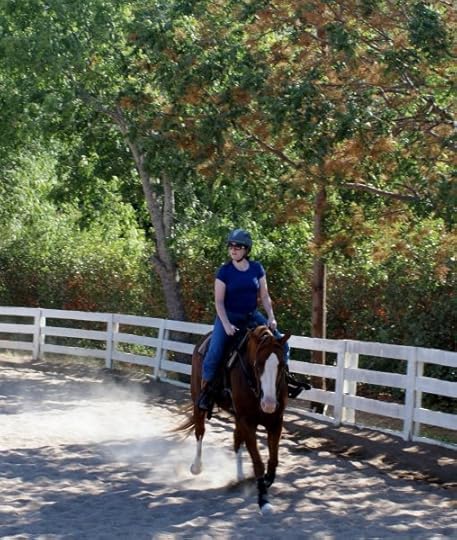 Missy and me. She’s a really sweet little mare.
Missy and me. She’s a really sweet little mare.
August 18, 2019
Dublin WorldCon Report
So Patrice, what do you do at these cons, anyway? Well, I:
Go to panels Talk on panels Visit the dealer room Buy books because…dealers are pushers Sign books Read from my work
That’s level one of a convention. Level two is meeting with friends in the hallway and giving hugs and promising to catch up and never doing, because there are thousands of people here and any meeting is largely fortuitous. But I did get a chance to spend time with a few folks like Gabrielle Matthieu, a friend first met in Austin and who now lives in Switzerland and who has her fourth book coming out this fall. And then there’s Zandra Renwick, a friend from Austin who now lives in Canada who makes short story writing look easy.
And of course, Martin Owton — sidekick, best writing buddy, author of grimdark, epic, and urban fantasy, with a new book out. We have been friends for over 20 years, mostly online, but when we can get to international or British or Irish conventions we are each other’s wingman. We’ve been traveling in the West of Ireland with Martin and his wife, Mary, and it’s always a joy.
Level 3 is the pro stuff. I’ve had meetings with my agent and my editors and meetings with potential editors, and all of that is the connective tissue that makes these conventions work. I had something of an epiphany here this weekend, that this convention is more for fans than pros, because I come to it as a fan and a pro and I am feeling a bit torn between the two roles, but the Martha Wells pointed out that look, I’ve done two conventions virtually back to back, and ArmadilloCon had some emotional peaks and valleys with fallout that is still reverberating, and whoa, those are some mixed metaphors there, and maybe, just maybe, that has impacted my embrace of this WorldCon. It is true that when I arrived at the convention on Thursday night I was overwhelmed. There are thousands of people here. But I persevered, because these are my people, all these thousands.
This convention has been extraordinary. I read tonight — scheduled against the Hugos — and hope to see some folks there. There are a few of us counter-programmed to the main event. I kind of don’t mind. It’ll be fine. I’m used to reading to a handful of folks. There’s been plenty of serendipity, the kind of thing that WorldCons are famous for, and I’m just jazzed to be on the show.
August 14, 2019
Dublin WorldCon Schedule
All right! ArmadilloCon is in the rearview mirror. Dublin is coming up! Here is my schedule PLUS I am signing at the Angry Robot booth at 11:30 am on Friday April 16.
Here is my Dublin WorldCon schedule. I’m so excited!
Horse sense
Format: Panel
15 Aug 2019, Thursday 21:00 – 21:50, Liffey Hall-2 (CCD)
How can fantasy authors write believable horse characters? The panel will discuss many aspects of horse knowledge such as: how fast cavalry can charge or travel in a day, how much and how often horses eat, how they are trained, and what makes a good rider. They will also consider who writes horses well, what do horses add to a story, and is it always necessary to get it ‘right’ if the story is good?
Patrice Sarath, Mike Scott, Linda Antonsson, Sarah Pinsker (SFWA) (M)
Dystopia in current times
Format: Panel
17 Aug 2019, Saturday 21:00 – 21:50, Liffey Hall-2 (CCD)
Where do we draw the line between a dystopia and living in a real, tyrannical state? What are the less obvious means that a state can use to control its citizens? Dystopias are frequently positioned as futuristic; under the threat of climate change and oppressive governments, how do we reconcile our world today with the dystopian fiction we consume? What can we take from these stories and apply to our own worlds?
Patrice Sarath (M), Pablo Defendini (Fireside), Rebecca Roanhorse, Veronica Roth
Reading: Patrice Sarath
Format: Reading
18 Aug 2019, Sunday 20:30 – 20:50, Liffey Room-3
August 6, 2019
ArmadilloCon 41
I did this.
Well, not just me exactly. But that was my thought when I got to the con. Took off a smidge early from work and came down to the Omni, avoiding most of the hellacious traffic that will plague Austin this weekend.
Got in, saw all my people, and realized just what I had wrought. Well, not just me, exactly.
This has been a process. Programming stretched me in ways my brain did not ask to be stretched, did not want to be stretched, complained very loudly that I was being stretched. But so many people came up and told me the program looks amazing. Not the same old same old, said Chris Brown and John Picacio, a writer and artist, respectively, who have made their mark on the genre in ways I am still working toward.
I heard laughter and conversation and loud laughter from the Marvel panelists, The horsemanship panel was a lively back and forth about understanding horses to write good fantasy, adding complications to plot and depth to characterization, of horses and human characters.
My interview with Patrice Caldwell (Patrice and Patrice!) was so much fun and so insightful. And this was a first — this was the first time that two Patrices have been in the same place at the same time. And the universe did not explode, like matter and antimatter. This convention had 100% more Patrices than any other ArmadilloCon!
Are there glitches? Yes. I have to forgive myself for dropping several balls. I missed programming people who needed to be on programs. I rectified that as much as I could, and the Lunar vision panel now has the NASA guy it should have had all along.
Marshall Ryan Maresca’s Toastmaster speech was heartfelt and wonderful and expressed exactly what I feel about this convention and why I wanted to get involved in running it. We are here. This is where we are — our people, our tribe, where we can be fans and creators both.
So there you have it. This weekend is the reason the blog has been silent. I am at ArmadilloCon and panelists and attendees have gathered to enjoy programming that is new and fresh and updated and brings people together for what we have always done — celebrate all things fandom.
We did this.
May 30, 2019
A conversation with Anna Kashina
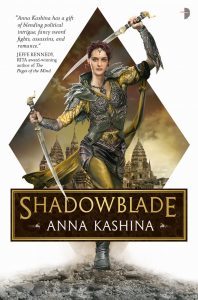
Shadowblade, by Anna Kashina
Anna Kashina joins us today. She is the author of Shadowblade, which was just released by Angry Robot Books. Anna chatted with me about her work and her Russian heritage, which she draws on in her writing. Side note: Look at that glorious cover, and yes, the hero does look a bit like the author!
Fantasy and romance sometimes gets a bad rap. Why are you drawn to the genre and what do people often get wrong about it?
There tend to be very different reasons for people to read. Some people read for purely for fun. Some want to challenge their emotions. Yet others tend to read about characters and situations they can directly relate to, and they take this relation quite literary. I suspect it is this last type that is somewhat behind the bad rap for fantasy.
 I tend to think of fantasy readers as special. These are the people who may be reading for all the above reasons, but they are more comfortable with different, rather than the familiar life they know. Even more, fantasy is about stretching the boundaries, dwelling in worlds where the extraordinary is possible, or even routine. I’ve seen those who don’t understand this label fantasy as “escapism”, and the ensuing discussions can get pretty heated. The same tends to happen with romance.
I tend to think of fantasy readers as special. These are the people who may be reading for all the above reasons, but they are more comfortable with different, rather than the familiar life they know. Even more, fantasy is about stretching the boundaries, dwelling in worlds where the extraordinary is possible, or even routine. I’ve seen those who don’t understand this label fantasy as “escapism”, and the ensuing discussions can get pretty heated. The same tends to happen with romance.
As a reader, I am one of those who loves to stretch the reality. I am also very visual, and visually interesting settings are always a bonus. I think historical fantasy based on very detailed worldbuilding is more or less unmatched in that regard.
As a writer, I see fantasy as the ultimate tool that not only enables visually beautiful, exotic settings, but also gives one unmatched possibilities of character development. Using magic and supernatural elements enables me to put my characters through far more challenging tasks than possible in everyday life. These extremes show off the characters’ strength and weaknesses so much better.
A very similar consideration exists with romance. Love is something we all understand, and most of us have experienced firsthand. It’s one of the strongest emotions I know. Putting romance into the story, forcing your characters through all these emotions, adds another dimension to their development, and can add so much to the story too.
In true romance, the additional requirement is the “happily ever after”. When you use romance as an element in a fantasy, though, it doesn’t have to be the case. At least not all the time. I do enjoy the “happily ever after”, but I also enjoy this freedom of unexpected, where nothing can possibly be taken for granted.
What were your influences and what made you decide to write in the fantasy genre?
My earliest influence were fairy tales I loved to read as a child. I think they primed me to be a fantasy fan, and eventually a fantasy author. They also developed my tendency of using multicultural folklore elements to develop my settings. Each of my worlds has a lore and mythology, whether or not they are shown on the page.
Are there differences between Russian and English-language fantasy traditions? How do your books reflect your Russian heritage?
I was about to say that Russian-language fantasy is a very recent thing directly influenced by Western fiction, but then I had to stop myself. Many classical Russian authors wrote fantasy in addition to the mainstream – Gogol and Pushkin immediately come to mind. When I was reading Russian classics, these fantasy stories attracted me more than the rest. They root in traditions and folklore, and this attracted me too, and was one of my first influences that shaped me as an author. And then there is Bulgakov’s MASTER AND MARGARITA, which is one single Russian book that is an absolute must-read for anyone interested in Russian literature. By genre, it is an urban fantasy. It is also brilliant, Most of us practically knew it by heart when we grew up, and in high school we could carry out entire conversation using the quotes from this book.
Back to my Russian heritage. I wrote my first novel in Russian, and then translated it into English using a dictionary. In the process I learned everything about the (in)compatibility of the two languages. Russian has many more tools for rich descriptions. English lends itself very well to action. I use both in my books, and indirectly, I tend to draw from both languages as I write. Of course, since I switched completely to English, in my most recent novels action tends to prevail.
In my worldbuilding I draw directly on the elements of the Russian culture (which is in itself a blend of many other cultures). I also draw on my experiences growing up, which are different from many of those that are common in the US. Camping in the wilderness without campgrounds or any man-made water sources, staying in remote unpopulated areas where the only food available is the one you hunt and gather yourself, hand-baking bread in an outdoor clay oven, heating a house in the dead of the winter with only the firewood you collect, hiking up in the mountains where the locals don’t speak your language and still live the same way they did hundreds of years ago – these are just a few of those things. These experiences tend to create skills and images very relevant to historical fantasy, and in one way or another they transpire into my stories.
And yes, I did write one novel, MISTRESS OF THE SOLSTICE, based very closely on Russian folklore. I am toying with the idea of another one. I feel very lucky to have the first-hand knowledge and experience to do this.
You’ve written a lot. How do you balance your writing career with the rest of your life?
Oh, that’s a hard one! It used to be fairly orderly – I worked during the day, and stole some hours at night for my writing. That was before I had two children.
At the moment, my writing schedule is very chaotic. I carry my laptop with me at all times, and steal in some writing time whenever I can. I tend to think of long waits in the doctor’s office, or airplane travel, as bonus writing time. And, I still have my hour or two after I put my children to sleep. As they grow older, I aim to get more and more. So, at least, there is a plan.
What is your favorite bit about Shadowblade?
My main character, Naia. I wanted to write a story of a regular girl who trains to achieve the highest blademaster rank in the empire. Showing her training, seeing her persevere and overcome impossible odds was very rewarding. Throwing her into an impossible assignment was scary – and in the end, even more fun. Strong female characters are so enjoyable to write about.
________________________
About the author:
Anna Kashina writes historical adventure fantasy, featuring exotic settings, martial arts, assassins, and elements of romance. Her “Majat Code” series, published by Angry Robot Books, UK, received two Prism Awards in 2015. She is a Russian by origin, and a scientist in her day job, and she freely draws on these backgrounds in her writing. Her newest novel, SHADOWBLADE, is upcoming from Angry Robot Books on May 7, 2019.
You can learn more about Anna at her blog
Order Links:
Amazon
Barnes & Noble
Indiebound
Powell’s
Author’s web site:
https://annakashinablog.wordpress.com/
Social Media Links:
https://www.bookbub.com/authors/anna-kashina
https://www.facebook.com/Anna-Kashina-215289654593/
https://twitter.com/annakashina/
https://www.instagram.com/anna_kashina_author/
May 8, 2019
Catching up on news, ArmadilloCon, and more
Whenever the blog goes silent, two things could be happening: I’m in a writer slump or there’s just a lot of stuff going on. This time, I’m happy to say it’s the latter.
Fog Season came out and I’ve been doing a series of book signings and other events. I’m off to Comicpalooza this weekend, God willing and the creek don’t rise, as they say
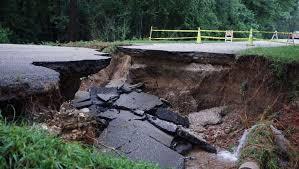
I’m not going to Kingwood but still. This is what Texas flooding does.
down here, and there’s a better than equal chance that the creek has not only risen it’s washed out the road, because we’ve been getting these vast apocalyptic rainstorms these past few days. This is normal for Texas, because if Texas isn’t in a drought, it’s being flooded. But, if the weather behaves, I’ll be in Houston among my people.
The weekend before last was a day at Scarborough Faire. I haven’t been since the kids were little, though we’ve been to other Renfaires in Texas, and it was good to be back. It was a beautiful day. As you can see in the photo, I decked myself out. My friend Jenny Hanniver laced me up, because as she said, a goth knows shoes and corsets. Her first tug was firm and tight and I had to have her back it down a notch.

All laced up and ready to have fun at the Faire.
Then last week we celebrated birthdays with friends. On Saturday my friends Julie and Austin celebrated Austin’s birthday with a day out at Blanco State Park. And on Sunday my friends Julie and Austin celebrated their birthdays with a lovely brunch. I was only confused a little bit when the invites came within two hours of each other. I once had three sets of friends named Patti and Mike, and we used to have to distinguish which we meant. Blond Patty, Long-haired Mike, etc. After the two parties were over, Ben referred to one of the Austins as Camping Austin, and sorry, Austin, but that’s just the way it goes from now on.
The real reason the blog has gotten short shrift is that I have taken on programming for ArmadilloCon, my hometown convention. We have an amazing lineup this year, and if you are local or even if you are not, you should come to the convention because it’s going to be super. I can’t divulge all just yet, so visit the website and take a look at the guests. I’m so excited about the programming, because it’s going to include student filmmakers and a screenwriting and movie track, and the whole thing is going to be so much fun.
And then there is the story a week challenge. I’ve struggled on actually writing a story a week, but that’s okay, because it’s the journey, not the destination. I just finished a story yesterday, called “The Scent of Horses,” and it’s sad. I had a hard time writing it because it was sad and personal.
And then there’s book news. We’re going out on submission with the new manuscript, I have an outline in the works for the third book in the Tales of Port Saint Frey, and I think I am going to jump into another project because it will cause me to stretch my abilities and potentially open up other doors for me professionally.
As for more stories in Port Saint Frey world, if you haven’t already signed up for my newsletter, which is extremely non-spammy and is irregular to the point of nonexistence, you can do so and I will send you a subscriber-only story set in the same world, called Red Ned Mederos and the Sea Girl of Port Saint Frey.
That’s all for now!
April 14, 2019
Next up–Comicpalooza 2019
Here is my schedule for Comicpalooza in Houston May 10-12
Saturday 12:00 – 2:30pm Open Mic Reading for All Genres
Saturday 3:00 – 4:00pm Magic Systems for Writers
Saturday 4:30 – 5:30pm The Storytelling of Game of Thrones
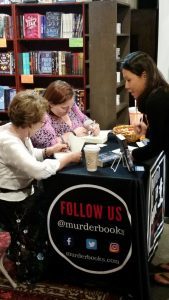
Myself and Amber Royer signing for fans at Murder by the Book.
I may have a signing as well, again through the fabulous Murder By The Book. We had a marvelous book signing event (we including Amber Royer, author of Free Chocolate and Pure Chocolate) and I’m looking forward to meeting folks at Comicpalooza who couldn’t make it to the in-store event.
Comicpalooza always wows me. I try to pretend I’m all cool around celebrities, but Emilia Clarke will be there and I think she’s super. Also, the talented and creative cosplayers are a huge draw, and the dealer’s room is my jam. So yes, I’m looking forward to spending the day and geeking out with my community.



